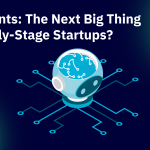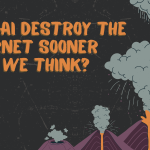Quick Take:
The rise of AI writing tools has triggered debates about authenticity, the value of human effort, and the evolving definition of creativity.
The Divided Landscape of AI in Writing
The adoption of AI in creative writing has polarized communities. On one side, enthusiasts see AI as a powerful collaborator that can speed up processes and aid creativity. On the other, critics argue that it undermines the authenticity and effort central to the writing craft.
A recent survey by Pew Research Center found that 60% of Americans feel uneasy about the use of AI in creative fields, reflecting the tension in industries traditionally dominated by human effort. In online communities like fanfiction forums, this discomfort is even more pronounced. Fanfiction writers, who often write out of personal passion, feel that AI-generated works lack the emotional depth that defines their stories.
For example, Archive of Our Own (AO3), a major fanfiction platform, saw heated discussions after members began tagging their work as “AI-assisted.” Many community members criticized these authors, emphasizing that writing is as much about the emotional journey as it is about the final product.
The Role of AI: Tool or Threat?
Supporters of AI argue that tools like GPT-4 or MidJourney are no different from spell-checkers or brainstorming assistants, as they enhance productivity. They highlight cases where AI was used for brainstorming, plot outlining, or even generating drafts to help overcome writer’s block.
Interestingly, a 2024 study from OpenAI revealed that users who employed AI for drafting saved an average of 30% of their writing time, allowing more focus on creativity and editing. Advocates believe that this use of AI aligns with traditional tools, which have long supported—but not replaced—creative professionals.
However, critics counter that reliance on AI diminishes skill development. A case study by ProWritingAid demonstrated that writers who used AI exclusively for drafting struggled with nuanced edits, resulting in mechanical prose that lacked personality. This reinforces concerns that heavy AI dependence could dilute the craft of writing over time.
Balancing Innovation and Authenticity
The future of AI in writing lies in how effectively creators balance its use with preserving the authenticity of their voice. Some suggest clear guidelines, such as labeling AI-assisted works, to maintain transparency and accountability.
Looking ahead, it’s clear that AI tools will not replace human writers but will continue to complement them. The challenge is ensuring that these technologies elevate creative processes without compromising the authenticity that readers value.
As we enter this “new era” of creativity, the writing community must address the fundamental question: How do we integrate AI without losing the humanity behind our stories?


